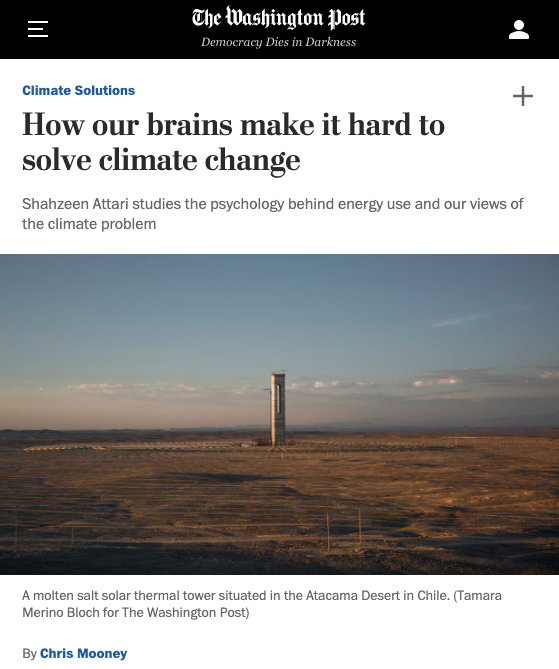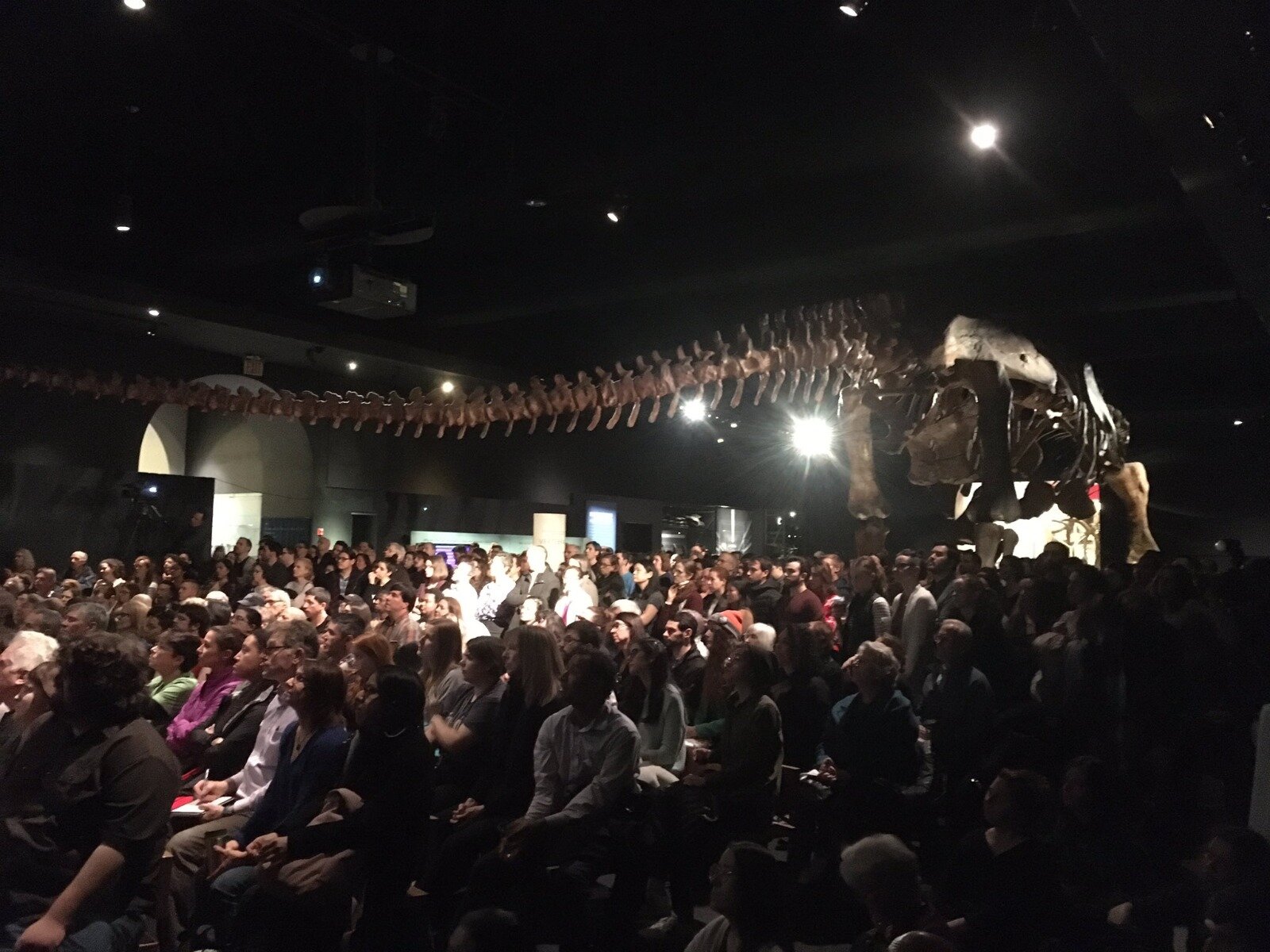IDEO’s Food team uses design to connect, support, and enable leaders and organizations committed to solving the toughest problems across the food system. We’re digging into the decades of intentional policies that have created today’s inequitable food system. Plus, why language matters when talking about the challenges we face, and how agency is key to creating new food systems that work for BIPOC. Shahzeen is featured in this episode discussing the future of food.
Spending a day talking about climate change...
A Matter of Degrees
New podcast begins with a perennial topic for climate folks: does personal behavior change matter? Giving up your climate guilt interviews @billmckibben and @Shahzeen.
Shahzeen receives the IU Bicentennial Medal
“The Bicentennial Medal is awarded to organizations and individuals who, through their personal, professional, artistic, or philanthropic efforts, have broadened the reach of Indiana University around the state, nation, and world.”
This gorgeous medal was designed by IU faculty Jeeyea Kim. More about the design here.
Systemic racism in higher education
“Breaking down the barriers of systemic racism in STEM and achieving the promise of diversity, equity, and inclusion in STEM require unwavering dedication and real work. It is time to make the commitment to be an agent of change.”
I am just one of the 10k+ signatures on this letter to end systemic racism in higher education.
NYT Climate Quiz
Washington Post's climate quiz
Shahzeen and lab profiled in the Washington Post
Wonderful conversation with Chris Mooney about our research and some of the challenges of solving climate change by harnessing human behavior.
New piece in The Conversation
Both conservatives and liberals want a green energy future, but for different reasons — New piece in The Conversation with our wonderful editor Jennifer Weeks. Authors Deidra Miniard, Joe Kantenbacher, and Shahzeen Attari. A summary of our recent paper in PNAS on a Shared vision for a decarbonized future energy system in the United States.
Congrats Deidra!
Deidra Miniard, 3rd year PhD student in our lab, just received a grant to fund her research. She is set to receive $9,100 from the Sustainability Student Research Development Grant program, a partnership between the Office of Sustainability and the Integrated Program in the Environment. Her work will focus on social distancing, environmental justice, and climate change.
Solve Climate Webinar - Indiana wide discussion on climate solutions
Shahzeen joined Sarah Mincey (Director, Integrated Program in the Environment), Janet McCabe (Director of the IU Prepared for Environmental Change), Vernice Riego (High school student and climate activist) and Steven Chybowski (Fellow in City of Fishers, IN) to discuss climate policy and energy transitions for the state of Indiana.
New paper in PNAS - Shared vision for a decarbonized future
Out today:
Shared vision for a decarbonized future energy system in the United States
How do people envision the future energy system in the United States with respect to using fossil fuels, renewable energy, and nuclear energy? Are there shared policy pathways of achieving a decarbonized energy system? Here, we present results of an online survey (n = 2,429) designed to understand public perceptions of the current and future energy mixes in the United States (i.e., energy sources used for electric power, transportation, industrial, commercial, and residential sectors). We investigate support for decarbonization policies and anti-decarbonization policies and the relative importance of climate change as an issue. Surprisingly, we find bipartisan support for a decarbonized energy future. Although there is a shared vision for decarbonization, there are strong partisan differences regarding the policy pathways for getting there. On average, our participants think that climate change is not the most important problem facing the United States today, but they do view climate change as an important issue for the world today and for the United States and the world in the future.
Congrats to Deidra and Joe!
Joe presents at O'Neill's Environmental Policy Seminar
Research Associate Joe Kantenbacher presents our new research that asks what gives Gen Z hope, despair, inspiration? What awaits in the best, likely, and worst possible futures in 2050 and 2100? Stay tuned.
This work is a collaboration with Nathan Gieger and Landon Yoder and funded by the Environmental Resilience Institute.
Deidra presents research at IU
Photo by James Boyd
PhD student Deidra Miniard presents research at the Association of O’Neill Ph.D. Students 20th Annual Conference at Indiana University. She discussed our new research that explores how conservatives and liberals think about decarbonizing our energy system and some of her new research on what Indiana residents think about climate change.
Congrats, Deidra!
Joe accepts a position at University of South Dakota
Huge congratulations to our postdoc Joe Kantenbacher who accepted a tenure track position at University of South Dakota in their Department of Sustainability & Environment.
Go, JOE!
Bringing social science and energy expertise to sustainability issues. Here is to the adventures ahead!
American Museum of Natural History
One of my **favorite** museums - the American Museum of Natural History in New York City - asked me to give a talk on Feb 5!!
I'll be talking about perceptions and motivations related to climate change.
Update: Here are some photos from the event. All with a Titanosaur measuring 122 feet in length (“The Titanosaur is so big that its head extends outside of its new home in the Museum's fourth-floor gallery. The Titanosaur lived in the forests of today's Patagonia about 100 to 95 million years ago, during the Late Cretaceous period, and is one of the largest dinosaurs ever discovered.”) Phenomenal event with about 500-600 people thirsty to learn about climate change and political change.


















